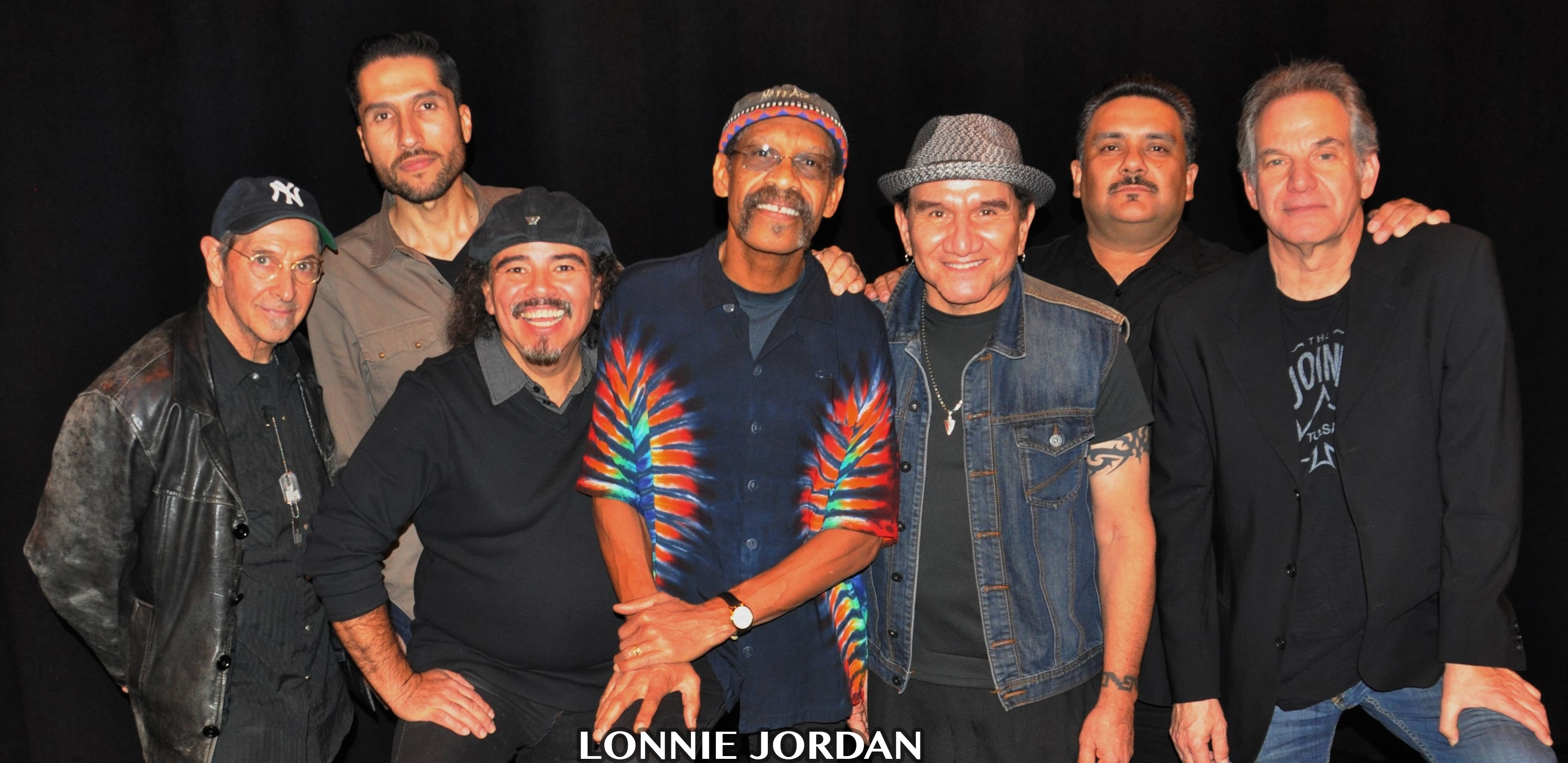The ‘70S Rock & Romance Cruise Catches Up With Lonnie Jordan of War

They were five guys from Long Beach and Compton in Los Angeles, and they grew up surrounded by every style of music – jazz, blues, Latin, country, gospel, West Indian, and of course R&B and soul. When they started playing together, all the music they’d ever heard went into a melting pot and came out as a style that could only be categorized as theirs. In 1969, they joined British R&B singer Eric Burdon, formerly of the Animals. “Spill the Wine” was their first hit. Burdon left, but War carried on and the hits kept coming. “All Day Music,” “Slippin’ into Darkness,” “The World Is a Ghetto,” “The Cisco Kid,” “Me and Baby Brother,” “Why Can’t We Be Friends,” “Low Rider,” “Summer,” and several more. Members came and went, but Lonnie Jordan stayed, and now leads the band. A naturally warm, gregarious guy, Lonnie is an ideal spokesperson and front man. If you see him at the breakfast bar or on the sun deck and you want a photo or an autograph, he’ll be more than happy to accommodate. We caught up with him doing what he’s been doing many nights a year since the 1960s … traveling to the gig. He was happy to talk about old times, today, and even Jimi Hendrix’s last show.
First, thank you for all the great music.
Thank you, and thanks to everyone who has loved our music.
Where’s home these days?
Still Los Angeles.
When you were listening to the radio in the Fifties and Sixties, was there a singer or group above all others that really made you want to be a part of the entertainment world?
Oh, man, where do I begin? James Brown. You gotta begin with James Brown. And Ray Charles and Elvis. I loved jazz guys like Art Tatum, Thelonious Monk, and Ahmad Jamal. And the Latin players. So many!
Did your family support your musical ambitions or tell you to get a real job?
My mother supported me all the way. My brothers, too. I was always a fidgety guy. I had to be pounding on a piano or drum. I was just unstoppable. They had no choice but to support me. I was a loaded gun!
You were the Creators, then Nightshift. Then you became War. Why War?
When we were the Creators and Nightshift, we were just five guys playing nightclubs on the chitlin circuit. Then we met Eric Burdon’s manager who became our manager. He saw us at a club. We had a few drinks afterward and we’d eaten Japanese food for the first time. We were a little tipsy, walking down an alley. We had the Afros, the whole scene. He saw us and said we looked we’d just walked off a battlefield. Bingo! WAR! We thought the name was too radical, but when we thought about it, we were rebelling against war. We were the war against war.
What was the moment when you thought, “This is happening. We’re stars.”?
We got used to people coming to see us because they were coming to see Eric Burdon. He came with a built-in audience. But what sealed the deal was when we were in Amsterdam and we heard “Spill the Wine” on the radio. Then we got a call from the States saying the song was at Number Two. Then we heard it a bunch more times on the radio. Then came television. Then we knew we’d made it!
How should we interpret the Rolls Royce in front of the fire hydrant on the cover of ‘The World Is a Ghetto’ album?
Lee Oskar played harmonica with Eric Burdon. He stayed with us and he was our album designer. The burger joint on the album cover was down the street from our office. We went there often. Lee just documented the street scene, added windows to the burger joint. The Rolls Royce was OURS! The world is a ghetto, y’know.
“The Cisco Kid” was about a Hispanic cowboy hero. What drew you to him?
We grew up with the Cisco Kid. He was a radio character in the 1940s and ‘50s and he was in movies. He was a hero to all of us in the ‘hood. He was a character. Nice clothes. Even his horse was dressed up. He was our hero so we wrote a song about him.
Did you believe that your music could be a unifying force? Black, white, Hispanic people could come together at your concerts, listen to your music, and perhaps be more tolerant of each other?
At first, we didn’t know what we had. Then at our concerts we saw there were all genres of people. Young, old, black, white, Hispanic, and so on. As we got older, we saw that we were unique. No one else had any sound remotely like ours. Everyone thought that we were playing THEIR music whether it was rock, reggae, R&B, jazz, calypso, or whatever. Our music became part of everyone’s lives. We realized we were troubadours, playing to everyone from all walks of life. But I guess that’s why we won so few awards. We didn’t have a label. We were part of every genre. We weren’t stuck with one. But I love that.
You guys were among the last to see Jimi Hendrix alive. Any memories of that gig in London?
We knew Jimi from much earlier when we both played the chitlin circuit. Then we were playing in London at Ronnie Scott’s jazz club. Eric Burdon was with us. Jimi and Eric knew each other, and Eric invited him down. Jimi had just played a festival in Germany. First night he came to see us, he didn’t have his guitar and didn’t play. Next night, he brought his guitar and we jammed on the Memphis Slim song “Mother Earth” for an hour. I guess that was the last music he ever played. Then he went back to mother earth. How ironic is that? He choked on vomit. His girlfriend, Monica, called us. She didn’t know what to do. It was Jimi’s own doing because he’d OD’d, but a doctor or nurse could have turned him so he didn’t choke.
I’m sure many people have come up and told you how much your music means to them. Is any story in particular that has stuck with you?
So many people have come up to me. So many. People talk about our music getting them through experiences in Vietnam, depression, and so on. I could write a song about it.
Is there anything about the way you recorded in the ‘70s that you feel is missing from the way records are made today?
Yeah, we’d put a tape on, it’d run for an hour. We’d put another on. We’d just jam, then play back the tapes, figure out which bits and pieces worked. Today, it’s a different form of art. It can be too perfect. Too robotic. We always let the mistakes roll if it felt right.
Do you have a pre-show ritual before you go out?
I usually say, “Sing the beat, be happy, party with the people and let them party with us, and for God’s sake don’t start thinking.”
Do you enjoy cruises?
I do. We’ve done several, but we’re really looking forward to Rock & Romance. We know a lot of the guys we’re working with. I love getting to know the fans in a way we never can on the road. You’ll see me at the breakfast line-up, lunch, and so on. My wife and I don’t hide. We enjoy everything there is to be enjoyed. Come up and say hi. After all this time, I still love the recognition and comments.
Colin Escott © 2017

